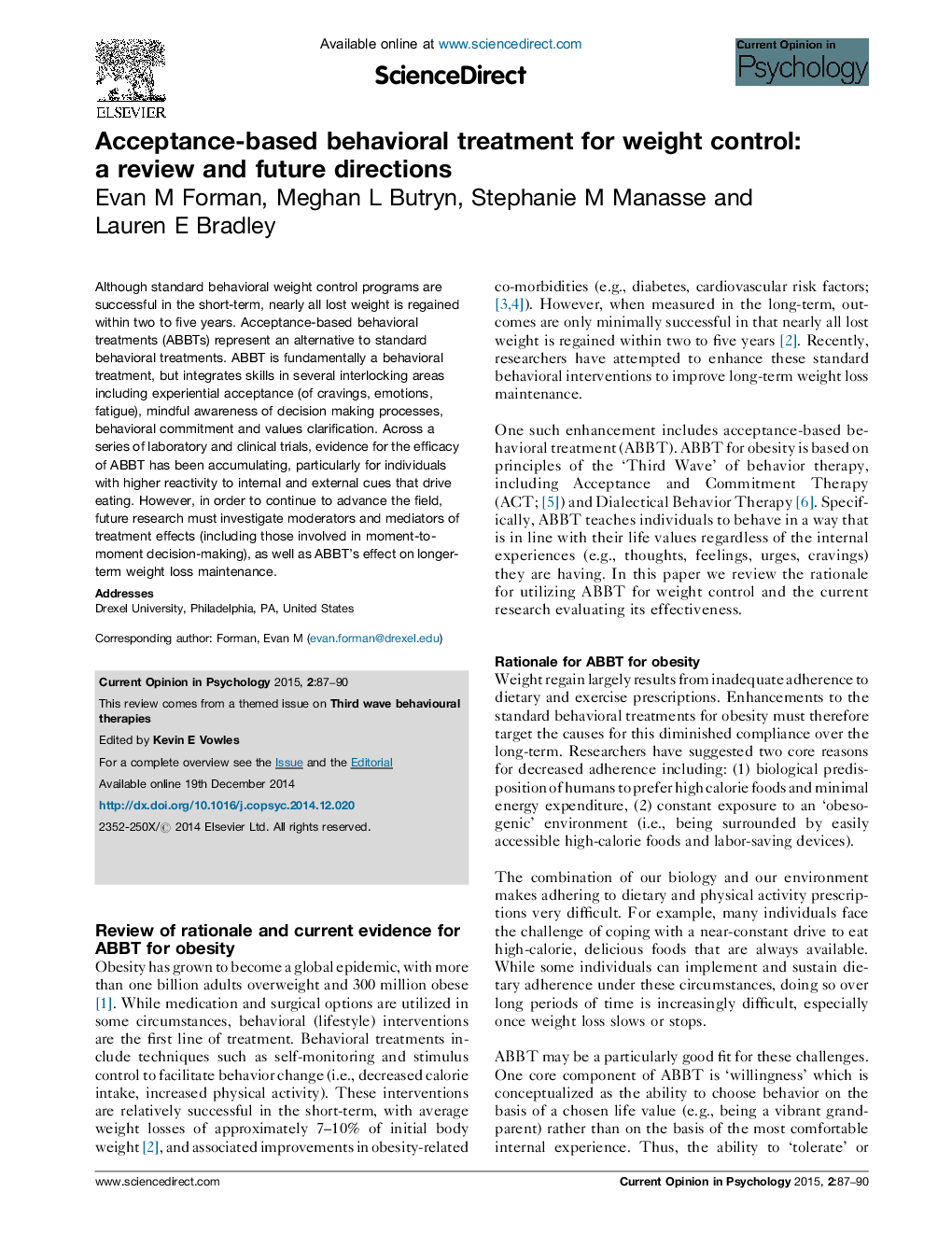| Article ID | Journal | Published Year | Pages | File Type |
|---|---|---|---|---|
| 879526 | Current Opinion in Psychology | 2015 | 4 Pages |
•Acceptance-based behavioral treatment (ABBT) may address weight loss challenges.•Targets include willingness, values clarity, and mindful decision making.•ABBT has shown to be efficacious in producing weight losses.•Future research must examine long-term outcomes, moderators, and mechanisms of action.
Although standard behavioral weight control programs are successful in the short-term, nearly all lost weight is regained within two to five years. Acceptance-based behavioral treatments (ABBTs) represent an alternative to standard behavioral treatments. ABBT is fundamentally a behavioral treatment, but integrates skills in several interlocking areas including experiential acceptance (of cravings, emotions, fatigue), mindful awareness of decision making processes, behavioral commitment and values clarification. Across a series of laboratory and clinical trials, evidence for the efficacy of ABBT has been accumulating, particularly for individuals with higher reactivity to internal and external cues that drive eating. However, in order to continue to advance the field, future research must investigate moderators and mediators of treatment effects (including those involved in moment-to-moment decision-making), as well as ABBT's effect on longer-term weight loss maintenance.
